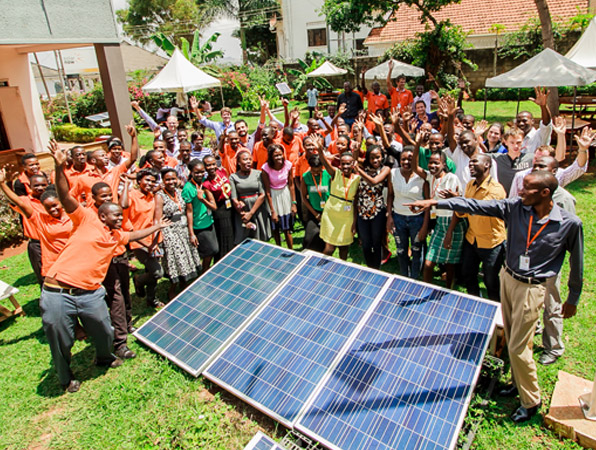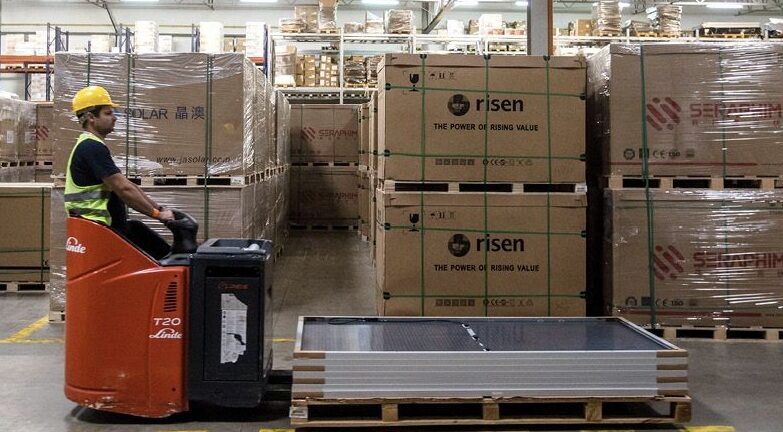With communities previously lacking electricity having reported improved lighting, wellbeing and safety – not to mention reduced kerosene usage – after the arrival of off-grid renewable energy systems, a report has outlined hurdles to the sector achieving its full potential.
‘Technology-enabled social impact company’ 60 Decibels interviewed more than 35,000 customers of 49 off-grid energy companies in 17 nations over three years to compile the study. The publication was sponsored by 60 Decibels parent company, U.S. development investor Acumen; U.K. government development finance body the CDC Group; energy efficiency alliance the Efficiency for Access Coalition; and the Shell New Energies natural gas and renewables unit of the oil giant.
Despite the increasing availability of finance, 60 Decibels found only 37% of its respondents live in poverty, limiting progress towards United Nations Sustainable Development Goal (SDG) number seven.
Development goal shortfall
That UN ambition concerns “access to affordable, reliable, sustainable and modern energy for all” by 2030 and potential shortfalls have been highlighted by five other global agencies. The International Energy Agency, International Renewable Energy Agency, United Nations statistics division, World Bank and World Health Organization last year estimated 650 million people would still be without electricity in ten years’ time at the current rate of progress, with 90% of them in sub-Saharan Africa. The 60 Decibels survey chiefly concerned respondents in Southeast Asia and sub-Saharan nations.
As the number of companies offering off-grid renewable energy systems – with solar the most popular solution – rises, 60 Decibels said businesses are moving upmarket, away from an initial focus on low-income customers.
There is also room for improvement in product quality and customer service, the study found. The percentage of customers reporting challenges in using off-grid energy products was relatively high, at 34%. Add inadequate after-sales support and customer frustration is the result, according to 60 Decibels. “Since most sales come via word-of-mouth, poor customer experience negatively affects both the top and bottom lines,“ the Why Off Grid Energy Matters report stated.
Bang for your buck
Despite such headwinds, however, the authors of the report found the social impact of energy access is real. Around 88% of people surveyed said their quality of life had improved thanks to the energy product or service they bought.
The report highlighted the potential of mini-grids to benefit the low-income families they are more likely to serve compared to the vastly more numerous solar lanterns and solar home systems. The 60 Decibels report argues mini-grid deployment should be supported by partnerships between businesses, investors and the public sector and supported by concessionary capital for the hardest-to-reach customers and communities.
The study cited the Rockefeller Foundation’s Smart Power for Rural Development initiative, which is being scaled up in partnership with Indian utility Tata Power, part of the Tata conglomerate. Seeded by grant capital from the foundation set up by the owners of U.S. giant the Standard Oil Company, and now led by the TP Renewable Microgrid entity established by the foundation and Tata Power, the program aims to install 10,000 mini-grids in India to serve 5 million households and 25 million people.
Oil company backing
In January last year, the Rockefeller Foundation and the development foundation set up by fellow oil giant Shell helped establish the Cross-boundary Energy Access (CBEA) fund to finance mini-grid deployment. The aim was to unlock $11 billion to bring electricity to 100 million people in sub-Saharan Africa. In July, the CBEA announced its first investment, of $5.5 million, for the development of 60 mini-grids in Tanzania. That cash pile was tasked to the PowerGen micro utility developer owned by Shell New Energies, which was mandated to sell on the resulting infrastructure to recycle the capital invested.
The Rockefeller Foundation and the Shell Foundation are both members of the Efficiency for Access Coalition which sponsored the 60 Decibels report.
Home PV systems, described by 60 Decibels as the “engine of the sector”, performed “well across the board in terms of customer experience and social impact” the report found, with solar lanterns found to have the greatest impact factor among such systems. The distributors of such single-household systems have amassed lots of capital in recent years, due in part to the perceived value of the datasets they are able to accumulate by analyzing the energy consumption and payment pattern data of their customers.
Solar dominance
Solar accounted for around 85% of off-grid solutions, according to 2019 figures. Solar home systems and lanterns and other lighting systems accounted for around 50% and 35% of last year’s off-grid renewables installations, respectively, followed by rechargeable batteries (10%) and mini-grids (2%).
A fifth of the customers surveyed by 60 Decibels harnessed off-grid energy to generate income but there has been criticism from some quarters the price paid is too high. According to the report, over-indebtedness is a small but significant issue, with 4% of the respondents saying their energy payments were a “heavy burden” and 5% forced to regularly cut back food consumption to make payments.
The 60 Decibels report also highlighted the off-grid sector could do more to serve women, with 68% of the users of such systems that were surveyed being men. In 58% of the households concerned, it was a man who had first heard about the product or service, the report added.
This content is protected by copyright and may not be reused. If you want to cooperate with us and would like to reuse some of our content, please contact: editors@pv-magazine.com.




We are a Solar panel Recycling company located in the USA.
http://www.RecyclePVsolar.com
We are testing panels and keeping the good working units for reuse then recycling all the broken non working panels.
Where can these good working panels go?
Off Grid Solar Could Absolutely Transform Lives In Africa!
I am a off grid solar electrician in Australia. I am aware of a amazing opportunity and way to provide off grid solar systems for very cheap prices to Africa. With the output of standard size solar panels of up to 400Watts now available the output performance of solar panels available has dramatically increased from just a few years ago. Many solar systems in Australia are now being upgraded by simply swapping the older panels with the newer higher output panels (Eg Sunpower maxion 3 400watt solar panels) in some cases more than doubling the solar systems performance. As a result of these upgrades there are now a lot of second hand solar panels in good working order and years of working life becoming available. There is no market for second hand solar panels in Australia and most likely never will be because you can not claim government rebate on a second hand solar panel nor is it likely any installer will touch them. If there we a program to collect these panels and ship them to say Africa this would be a ideal solution and a win win for everyone. You can fit 800 panels in a shipping container and it costs $2350 in shipping costs means less than $3 per panel to ship. It’s a no Brainerd. I’m just putting it out there
We need this service now how do we get hold of these people?
I own a small company in South Africa that is associated with a company that has developed mini grid systems for use in Africa, we build and supply a few thousand an year to our local government. It requires a lot of red tape and to be honest the will to help disadvantaged people is lacking.
We are for ever hearing Africa has a problem and that there are organizations out there that have funds available to assist in projects like these, yet being South African and only having done local work makes it is near imposable to find a international company to partner with.
Would finding an solution on the continent were it is the most prevalent not be to the advantage of the people in Africa.
The design of the products has been done in such a way that we would be able to set up small community based assembly plants in each country, we would not only be uplifting the lives of the community by giving them lights as brought out in your article but could also help with the serious problem of unemployment.
Any suggestions on how to reach the funders so as to help.
Yes your redundant panels can be used.
Living off grid in Hawaii. Zero utilities bill. We grow our own food.
In my opinion, the more people we can get off the grid, the better. I currently have solar but we are still on the grid. My goal is to get us off the grid and completely self sustained.